A CONCISE HISTORY OF SUNNIS AND SHIIS
ALSO BY JOHN MCHUGO
A Concise History of the Arabs
Syria: A Recent History
John McHugo
A CONCISE
HISTORY
OF SUNNIS
& SHIIS

First published 2017 in Great Britain by Saqi Books
Copyright John McHugo 2017
No part of this book may be reproduced or utilized in any form or by any means, electronic or mechanical, including photocopying and recording, or by any information storage and retrieval system, without permission in writing from the publisher.
The publisher is not responsible for third-party websites or their content. URL links were active at time of publication.
Library of Congress Cataloging-in-Publication Data
Names: McHugo, John, 1951- author.
Title: A concise history of Sunnis & Shiis / John McHugo.
Other titles: Concise history of Sunnis and Shiis
Description: Washington, DC : Georgetown University Press, 2018. | Includes bibliographical references and index.
Identifiers: LCCN 2017050401| ISBN 9781626165861 (hardcover : alk. paper) |
ISBN 9781626165878 (pbk. : alk. paper) | ISBN 9781626165885 (ebook)
Subjects: LCSH: Islamic sectsHistory. | SunnitesHistory. |
ShiitesHistory.
Classification: LCC BP191 .M44 2018 | DDC 297.8/042dc23
LC record available at https://lccn.loc.gov/2017050401
 This book is printed on acid-free paper meeting the requirements of the American National Standard for Permanence in Paper for Printed Library Materials.
This book is printed on acid-free paper meeting the requirements of the American National Standard for Permanence in Paper for Printed Library Materials.
19 189 8 7 6 5 4 3 2 First printing
Printed in the United States of America
To the memory of my parents, with love and gratitude
Christopher Lawrence McHugo, 19091987
Jan McHugo, 19132001
May they rest in peace
Contents
List of Maps
Glossary
Abbasid: the dynasty of Caliphs who were descended from the Prophets uncle Abbas and who ruled during the period 7501258.
Akhbari: a school of Twelver Shii theology which rejects the rationalist methods of the rival Usuli school.
Alawi: a member of a secretive Shii sect; the Alawis predominate in the mountains above Lattakia in Syria and in parts of the Orontes valley further east. There are also Alawis in Turkey.
Alevi: a Shii grouping in Turkey who are the present-day spiritual descendants of the Kizilbash.
Ansar: the Muslims during the time of the Prophet who were natives of Medina.
Ashura: the Shii commemorations of the martyrdom of Hussein, the Prophets grandson, on the 10th day of the month of Muharram.
Ayatollah: literally sign of God. A pre-eminent religious scholar in Twelver Shiism.
Al-Azhar: a university mosque originally founded in Cairo by the Fatimids during the 970s. Today it is the most influential teaching institution of Sunni Islam.
Batini: literally, esotericists. A derogatory name for the Fatimid Ismailis.
Caliph: the word can mean either deputy or successor: a title adopted by the successive leaders of the Muslim community after the death of the Prophet Muhammad; hence caliphate for the caliphs office, or the area under the caliphs stewardship.
Dai: an Ismaili missionary.
Dawa: the call or the preaching.
Druze: a member of a secretive sect that is an offshoot of Shii Islam. They are numerous in parts of Lebanon and the Hawran plateau, southeast of Damascus. There is also a Druze community in Israel.
Faqih: a Muslim religious scholar who is versed in the detail of the Sharia.
Fitna: civil disturbance or discord.
Gnostic Shiis: Shii movements preserving heterodox beliefs that predate Islam.
Hadith: the sayings or traditions ascribed to the Prophet Muhammad.
Hijra: emigration, specifically the Prophets emigration from Mecca to Medina.
Ijtihad: independent judgement, especially in a legal or theological context.
Imam: a religious leader. The word may mean no more than a prayer leader or preacher, but for Shiis the word is used for the divinely inspired and infallible teacher whom all Muslims are bound to follow. See the discussion of the term in .
Ismailis: the second-largest Shii sect. They believe that the line of the Imams descended through Ismail, who died before his father, the sixth Imam, Jafar al-Sadiq. His line has continued until today and is now represented by his descendant, the Aga Khan.
Jahiliyah: literally, the age of ignorance, the age before the preaching of Islam.
Jazeera: island or peninsula in Arabic. Also the name of the large area of steppe between modern Iraq and Syria.
Jihad: literally, expenditure of effort or endeavour. Jihad is the struggle a Muslim should wage against his ego and for his religion. This includes religious warfare in the name of the Muslim community, which is the most common use of the term today.
Kaba: the shrine in Mecca.
Kharijis: a Muslim sect that rejected both Ali and Muawiya as the leader of the Muslim community and is neither Sunni nor Shii.
Kizilbash: literally redheads. The Kizilbash were a confederation of Turkic tribes who supported Shah Ismail and subsequent rulers of Iran.
Madhhab: a doctrinal law school in Sunni Islam that is considered valid by all Sunnis.
Madrasa: a religious school or seminary.
Mamluk: a slave soldier usually brought as a boy from a distant country and brought up to be a member of a military elite.
Maronite: a member of a Christian sect predominant in parts of Lebanon but also with followers scattered throughout Greater Syria. This sect has retained its own traditions and autonomous structure while being in communion with the Roman Catholic Church since the time of the Crusades.
Mufti: a religious scholar of sufficient eminence to give opinions on questions of Islamic law that it is reasonable for other Muslims to follow.
Muhajirun: literally the emigrants, those Muslims who followed Muhammad to Medina.
Muharram: the month in the Muslim calendar in which Hussein was killed.
Mujtahid: an expert jurist whose degree of learning and piety is such that he is able to use his independent reasoning to interpret and develop questions on the Sharia.
Munafiqun: the hypocrites, those Muslims who converted to Islam in Medina for reasons of expediency and were judged to be insincere.
Mutazili: a movement in the Abbasid era that applied the logical techniques of Greek rationalism to developing Muslim theology.
Notables: the elite, aristocratic families of the Ottoman Empire and its successor states.
Rashidun: the first four caliphs, Abu Bakr, Umar, Uthman and Ali, who are accepted by Sunni Muslims.
Safavids: the dynasty that ruled Iran from 1501 to 1722 and converted most of the country to Twelver Shiism.
Salaf: ancestors, predecessors, specifically al-salaf al-salih, the righteous ancestors or forefathers, namely the first three generations of Muslims.
Salafi: literally a follower of the forefathers. The term is generally used for a Sunni Muslim who follows a rigid and literalist form of Islam and tries to base his life as closely as possible on that of the Prophet and his Companions in the seventh century. Hence, Salafism.


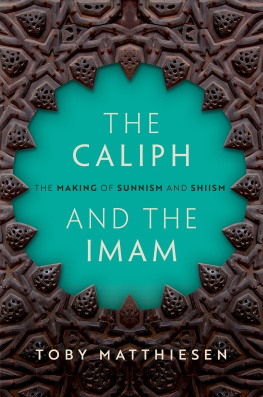

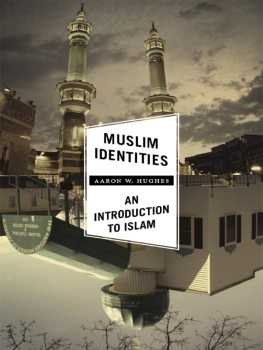
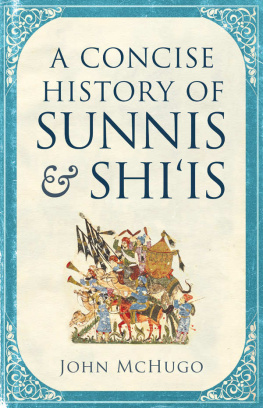
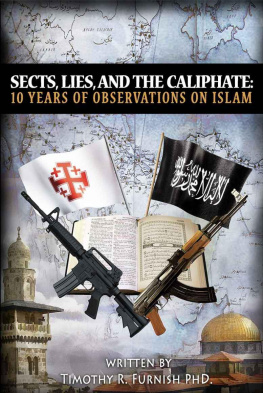
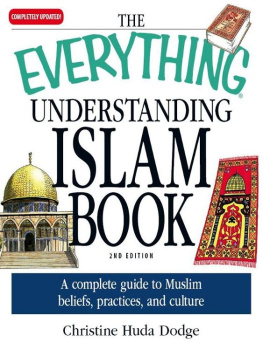
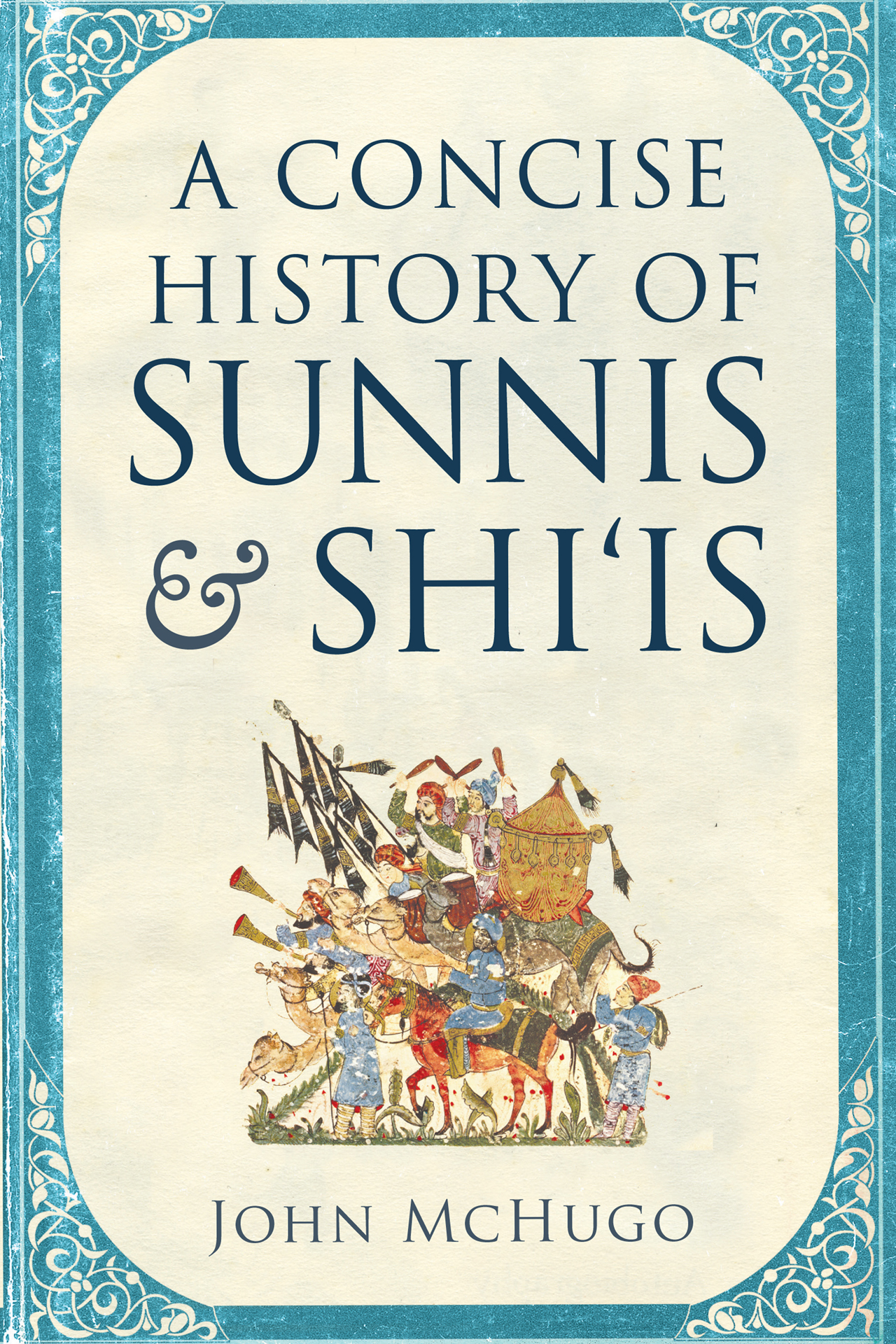

 This book is printed on acid-free paper meeting the requirements of the American National Standard for Permanence in Paper for Printed Library Materials.
This book is printed on acid-free paper meeting the requirements of the American National Standard for Permanence in Paper for Printed Library Materials.